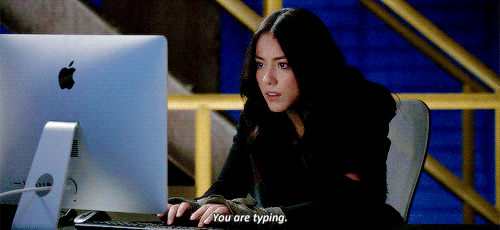#it's not generally my forte but i've been presented with a unique opportunity that i want to not miss out on bc i fail as a writer
Text
Anyone have any short prompts or idea nuggets for a short story with a creepy, spooky theme (ghosts, specifically)?
Asking for a friend.

#charlotte writes#it's me hi i'm the friend it's me#trying to write a short story for a themed submission but i have no idea how to start#it's not generally my forte but i've been presented with a unique opportunity that i want to not miss out on bc i fail as a writer#writing prompts#writing#fic prompts#paranormal prompts#mood gif
6 notes
·
View notes
Text
I want respond to @malicious-compliance-esq this way because my original post is already very long, and I've reblogged it a couple of times already to give more people a chance to see it. The original post with your added commentary is linked here.
First, I think we're talking about the closet and its impact on Martin's identity in different ways.
And it’s tricky business negotiating any of that when one hasn’t even gotten latitude to understand one’s sexuality completely in the first place—as often happens for bisexual folks and those who occupy other liminal queer experiences. Without that coming into identity, the closet remains not only constraining but also shadowy and fathomless. I see this happening with Ben Martin absolutely, which likely explains a good bit of his approach-avoidance behavior towards Tavington. He defaults to the language he speaks most fluently: physical violence, and threats thereof. It’s foreplay and cover all rolled into one.
I think it's very generous to Martin to present his violence as a cover up for his sexuality. What I'm arguing here is that his lust for violence is what is being covered up and represented as "justice" the way Roy Cohn's AIDS diagnosis gets relabeled as "liver cancer." Yes, Martin's rape-y violence is carried out exclusively against men, but is his queerness really to be prioritized here over his horrendous ways of enacting it? Also, he's enacted it with other men long before meeting Tavington, and while he certainly seems to be savoring the opportunity to kill him particularly after Thomas's murder, he also engages in extremely brutal violence against a man who is just following orders.
The other part I wanted to respond to is your reading of Charlotte Selton in contrast to Martin and Tavington.
Charlotte Selton certainly constitutes a fit match for Ben Martin in her own unique propensity for violence; a generous interpretation of her character would frame her as passively reproducing harms against Black people by not freeing her slaves. Parallels between Ben’s history at Fort Wilderness and Charlotte’s own life on her plantation before it burns invite themselves readily. What even happened to the other people impacted by the fire? Did the enslaved people living there lose what passed for housing, winding up caught by patrols and tortured? What happened to the families of all the people Ben and his men killed in that previous bloody war against local Native American communities?
For someone who claims to find such regret in past violence, Martin seems to accept the lot blithely if it means he gets to kill Tavington and not constantly have that reminder of his own unexamined sexuality following him around. He returns to a bland facsimile of the life he once knew with his late wife—which ironically spotlights how in many ways Will might have been the more upstanding choice of partners. And that’s after he killed two of Martin’s kids. Structural violence is a thing, folks.
I'm as critical of Charlotte Selton as anyone, but I think this is conflating oppressive systems with individual actions in a way that presents her in an unfairly poor light. She is guilty of not freeing the enslaved people she inherited from either her father or late husband--the film is unclear about this--and that is evil. But while structural violence is a thing and she is guilty of participating in it, however passively, murder is not a thing she is guilty of. Tavington may not own slaves personally, but not only does he force free Black men into servitude, he kills enslaved Black men. It is historically unlikely that a man of Martin's station would employee free Black men when slavery was so common in his community, but that is not a reason to doubt the truth of what the field worker who speaks to Tavington tells us. Tavington shoots two enslaved people (I think) and would possibly have shot more had Martin not arrived to lure him away.
At the same time, Martin does not just passively benefit from Native genocide; he has gotten his hands dirty in that ugly business in the most literal way. And unlike Martin with his so-called remorse, if Charlotte ever had a change of heart about slavery, the enslaved people she inherited were still alive to be set free! Or they're alive to free themselves, as many enslaved people in South Carolina did after the British arrived. If the people on Charlotte's plantation are left homeless by the fire--a situation in which the British soldiers who set it are at least as culpable as her--it is entirely possible that they did just that.
With the exception of a couple of British officers and Martin's younger children--characters who have comparably few lines and tiny amounts of screentime--everyone in this movie is kind of shitty, but there are degrees of shitty-ness. Charlotte is evil in a very banal ways as befits her banal personality, but the hero and villain are in a class by themselves as far as violence goes.
8 notes
·
View notes